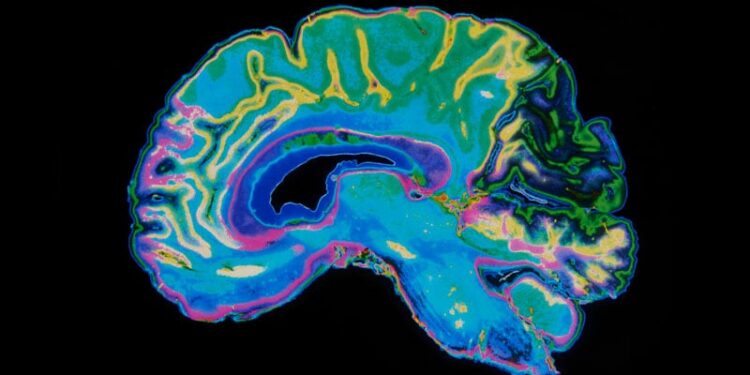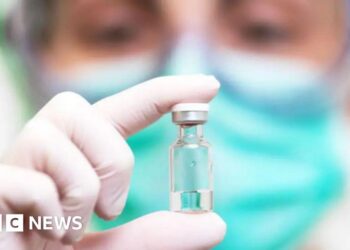TOPLINE:
Adults with rheumatoid arthritis (RA) and high levels of pain activation in their brain responded better to the TNF inhibitor certolizumab pegol in a phase 3 trial.
METHODOLOGY:
- Randomized phase 3 trial at six centers in Germany, Serbia, and Portugal (September 2013 to January 2020) assessed response to a TNF inhibitor in RA based on disease-related central nervous system (CNS) activity.
- Trial included 139 adults with RA (mean age, 54.3 years; 71% women) who had a disease activity score in 28 joints (DAS28) > 3.2 and an inadequate response to at least one synthetic disease-modifying antirheumatic drug.
- Patients were stratified by high or low CNS-activated brain volume due to pain and randomly assigned to placebo or 400 mg certolizumab pegol at weeks 0, 2, and 4, then 200 mg every 2 weeks for up to 24 weeks.
- A placebo group (n = 47) and two certolizumab pegol groups were formed: one with high CNS-activated volume (n = 49) and one with low CNS-activated volume (n = 43).
- The primary outcome was achieving DAS28 ≤ 3.2 at 12 weeks; a predefined difference in DAS28 of > 0.6 points was required between patients with high CNS-activated volume on certolizumab and patients on placebo.
TAKEAWAY:
- Low disease activity was achieved by 57% and 44% of patients in the certolizumab pegol groups with high and low CNS-activated volumes, respectively, and by 26% of patients in the placebo group.
- The high CNS-activated volume group showed a better response than the placebo group (P =.0017) and met the predefined difference in DAS28, but the low CNS-activated volume group did not.
- The mean DAS28 values at week 12 among patients on certolizumab were 3.1 and 3.4 in those with high and low CNS-activated volumes, respectively, and 3.8 for those on placebo.
- A total of 25 treatment-related adverse events were reported, with 22 in patients who received certolizumab pegol and three in those who received placebo.
IN PRACTICE:
“These data highlight the role of subjective patient-related parameters in the response to cytokine inhibition and suggest that a high-volume representation of the disease in the CNS — involving more frontal-associative brain circuits — increases the likelihood to respond to TNF inhibitor,” the study authors concluded.
“In terms of prediction, this study certainly supports a role for brain-derived data, but, at this stage, it appears the contribution is complementary rather than comprehensive; thus, their integration into multiparametric biomarkers should be considered,” experts wrote in an accompanying comment.
SOURCE:
This study was led by Andreas Hess, PhD, Institute of Pharmacology and Toxicology, Friedrich-Alexander Universität Erlangen-Nürnberg, Erlangen, Germany. It was published online on June 23, 2025, in The Lancet Rheumatology.
LIMITATIONS:
DAS28-CRP was used for low disease activity assessment; however, the threshold was validated for DAS28-ESR. Functional MRI measurements may be influenced by the mental or circulatory health of the patient or technicalities of image acquisition.
DISCLOSURES:
This study received support from UCB Biopharma. Additional support was received from the Bundesministerium für Bildung und Forschung. Three authors reported receiving support from the Deutsche Forschungsgemeinschaft. Several authors reported receiving research grants, honoraria, or consulting fees, and having other financial ties with several pharmaceutical companies, including UCB, AbbVie, and Lilly.
This article was created using several editorial tools, including AI, as part of the process. Human editors reviewed this content before publication.
Source link : https://www.medscape.com/viewarticle/disease-associated-brain-activity-may-predict-tnf-inhibitor-2025a1000j3y?src=rss
Author :
Publish date : 2025-07-18 12:12:00
Copyright for syndicated content belongs to the linked Source.








